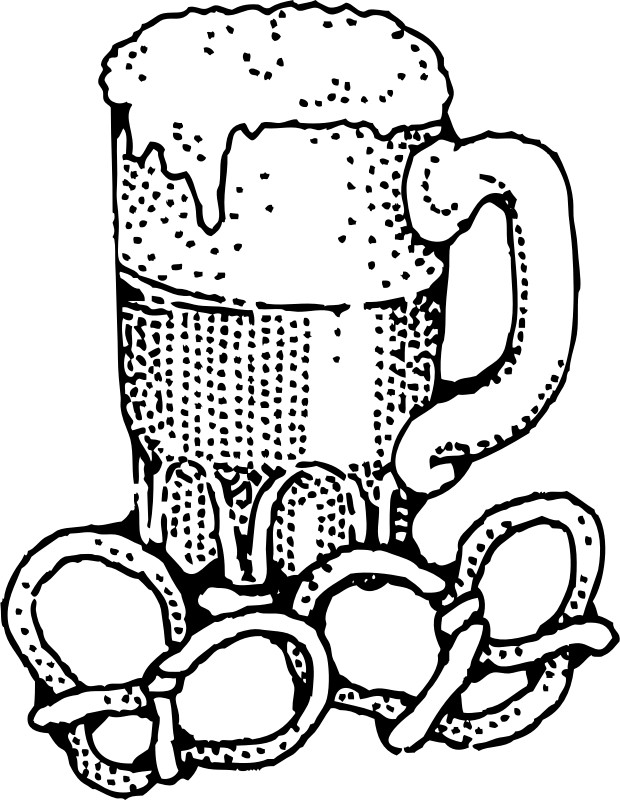Of Creation, Evolution, and Worship
There are few topics that get Christians more angry at one another than the subject of evolution. Those who accept a young earth (or young age for the universe) tend to think that those who accept the theory of evolution do it simply because they lack the faith to believe the Bible. To them, this is the first step toward rejecting Christianity and becoming an atheist. Those who accept the theory of evolution often think the young earthers are ignorant, perhaps willfully so. (All of this ignores the broad sweep of views between young earth creationism and a purely materialistic view of origins. There are many nuances on the line between the two. But that is a subject for another blog post.)
I disagree with both those viewpoints. Irrespective of my own beliefs (and I’ll get to those in a moment), I have met too many dedicated Christian believers whose faith is nurtured by Scripture and also accept evolutionary science to imagine that acceptance of evolution is necessarily the first step on the road to unbelief. I have also met too many intelligent and capable individuals who accept a young earth to believe that they are all ignorant or stupid. As a matter of principle, I never want to imagine someone is stupid because of their view on a single issue, nor do I want to think them immoral because of their view on one moral issue. Someone who is intelligent, competent, and functional, and yet believes something I find ridiculous, does not thereby become generally stupid.
As an example, my dad was a doctor (MD), and an excellent one. Yet he believed in a young earth and a literal creation week his entire life. I’m not going to go down the route of believing that he was somehow less capable of carrying out his profession in a competent fashion, which he did all his life, because of one issue. There’s the family connection there, but I know a number of other people in similar situations.
In spite of this, I am not arguing a middle of the road position. I have a firm position on creation and evolution. I was raised with young earth creationist literature. I devoured the literature written by George McCready Price and Frank Lewis Marsh, icons of my Seventh-day Adventist upbringing, as well as many others. I did not begin to doubt this view because of studying science. In fact, I changed my position through a study of Scripture. It all started when I wrote a college paper examining the text of the genealogies of Genesis 5 & 11 and looking at the resulting chronology. Archeology did enter into it, as I looked at the dating of events that would be required to match that chronology, but characteristics of the text itself first suggested that we did not have literal history there. Nothing I have studied since has changed my mind on that point.
 But I’ve written on this subject many times before. Just try typing “evolution” in the search box. I’m writing this because I’ve just sent a book off to the printer titled Worshiping with Charles Darwin. That’s a provocative title. Carol Everhart Roper designed a provocative cover to go with it. That was intentional. It’s not actually the most controversial book I’ve published, even on this topic, but I’ve focused on the controversy. That’s marketing, but it also comes from conviction.
But I’ve written on this subject many times before. Just try typing “evolution” in the search box. I’m writing this because I’ve just sent a book off to the printer titled Worshiping with Charles Darwin. That’s a provocative title. Carol Everhart Roper designed a provocative cover to go with it. That was intentional. It’s not actually the most controversial book I’ve published, even on this topic, but I’ve focused on the controversy. That’s marketing, but it also comes from conviction.
I look at this from two perspectives. First, as a Christian and a church member, I believe that this is a non-essential. That God is creator is an essential. How God created is not. I think we should have tolerance and respect in the church on this issue. But my belief in tolerance and respect does not mean that I don’t have a firm position on the issue myself. I believe that God is the creator of heaven and earth and that through the study of the world by the methods of the natural sciences we can learn how creation was accomplished and how the physical world functions. I believe we are in error both in theology and in science when we try to impose our theology on the findings of science. It’s bad theology because to claim that what we learn from the natural world is not reliable we make God a liar. It’s bad science because it imposes a conclusion prior to the data.
Thus I would be called a theistic evolutionist, though I object to the label. I am a theist, in that I believe in God. But my theism is not a characteristic of my acceptance of the findings of evolutionary science. Though I am strictly an amateur in any scientific endeavors, I do not modify the findings of science by saying “and God.” This is not because I do not see God in the natural world. It is rather because I see God everywhere in the natural world and not more so in one place or another. I do not see God more in my cat’s purr than I do in a pencil falling. Both things result from God. Science tells me how. Science does not discover God at some specific point. Science is studying God through studying God’s handiwork. But science does not improve its study of the handiwork by trying to pretend to find God at some specific point. That is why I don’t like linking the word “theist” to “evolutionist.”
But I also object to the word “evolutionist.” Evolution is not my philosophy. It is not my religion. It is not an article of my religious faith, though the fearless pursuit of accurate knowledge is. I am not an evolutionist any more than I am a gravitationist. I believe that gravity functions as science describes. I believe that evolution functions as science describes. I believe we will discover more about how each of these works. Neither gravity nor evolution is an object of my faith or trust. My trust in science is based on the method, a method that has proven functional repeatedly. It is not a matter of perfection either. Science will produce new results and alter previous understandings. But it has proven effective at correcting its own errors.
Now people who believe what I do about evolutionary science have tended either to keep quiet in church or to simply say that we believe the Bible teaches that God is the creator and the how doesn’t matter. I don’t agree with these approaches. What I think we need to do is think about how the discoveries of natural science impact what we believe about God and how they change how we tell the story of God the creator. Genesis 1 & 2 told the story to the ancients. We can listen in to that story and learn theology and generate our own liturgy. But I think to tell the story as faithfully as it was told so long ago we need to tell the story of the creator in the light of what we know about cosmology and origins. Belief that God has used evolution as the means of diversifying life here on earth, and presumably elsewhere in the universe, is not a withdrawal from an area of faith. Rather, it is a new look at the expanding story of God and our knowledge and experience of God. We need to tell that story faithfully and vigorously.
And this brings me back to the title of this recently released book. We could pretend that the discussion doesn’t matter, but that would not be faithful to the search for truth or to the integrity of the way we proclaim the gospel. I know of people for whom this issue has been a stumbling block. It’s time to talk about it openly. We’ve been arguing about it vigorously, but that’s not what I mean. We need to start looking at the implications and talking about how we tell the story of the gospel faithfully in the world God created and is creating. I think that is something worth celebrating.
Bob Cornwall has taken up one part of that task. I hope the conversation continues to grow.


Henry, this is one of your better posts. I’m like to reprint it on UM Insight. I may get a little flak for promoting Bob Cornwall’s book, but I’m prepared for that. Bob is a longtime colleague from my days at The Progressive Christian magazine and I respect his work highly. Let me know if it’s OK to repost your essay. Thanks!
You have my permission to repost any time. I really like UM Insight and I’m happy to support your work.
“I am not an evolutionist any more than I am a gravitationist.” Great sentence!